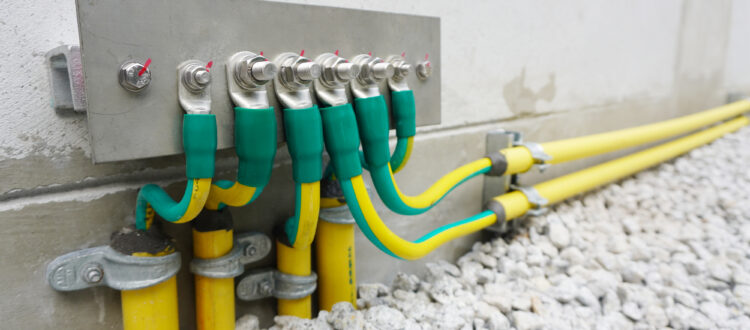5 Reasons Why your Building needs to be Grounded
Grounding is an essential safety measure for buildings that helps protect both people and electrical systems from the dangers of electrical faults and lightning strikes. It is necessary to ensure electrical safety, protect equipment, mitigate lightning damage, reduce electromagnetic interference, and dissipate static electricity. Here are the main reasons why buildings need to be grounded:
- Electrical Safety: Grounding prevents electric shocks and reduces the risk of electrocution. When a fault occurs in an electrical system, such as a short circuit or a broken wire, the electrical current can flow to the ground instead of passing through people or objects in the building. Grounding provides a low-resistance path for this excess current, allowing it to safely dissipate into the earth.
- Equipment Protection: Grounding helps protect electrical equipment and appliances from damage caused by electrical surges. Electrical surges can occur due to lightning strikes, power grid fluctuations, or faulty wiring. By providing a path of least resistance to the ground, grounding allows excess electrical energy to dissipate harmlessly, preventing damage to sensitive equipment and appliances.
- Lightning Protection: Buildings are vulnerable to lightning strikes, which can cause severe damage and pose a significant safety hazard. A properly grounded building offers a controlled path for lightning to follow, directing it safely into the ground. Grounding systems for lightning protection typically involve metal rods or conductive materials installed deep into the earth, connected to the building’s electrical system and structure.
- EMI/RFI Mitigation: Electromagnetic interference (EMI) and radio frequency interference (RFI) are unwanted electrical signals that can disrupt the functioning of sensitive electronic devices. Grounding helps reduce EMI and RFI by providing a reference point or shielding against these unwanted signals. By connecting electrical equipment and devices to a common ground, any extraneous electrical noise or interference can be eliminated or minimized.
- Static Electricity Discharge: Grounding is crucial for dissipating static electricity, which can accumulate on objects or individuals within a building. Static electricity build-up can cause shocks, damage sensitive equipment, and create fire hazards. Grounding provides a path for the static charge to flow safely into the ground, preventing the accumulation of static electricity and its associated risks.

